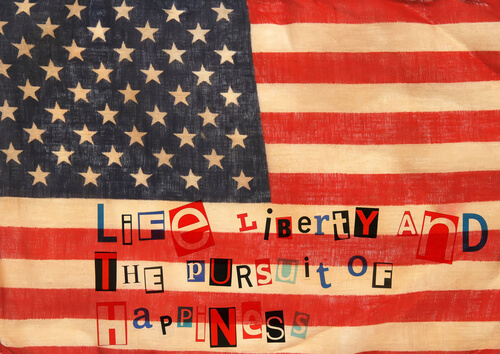 Core Democratic Values (CDVs) are the only topic I remember learning in first and second grade. However, beginning in third grade and beyond, I don’t remember CDVs being as integral to the social studies curriculum. At the risk of generalizing, the shift of my memories correlates with a larger narrative this country has experienced.
Core Democratic Values (CDVs) are the only topic I remember learning in first and second grade. However, beginning in third grade and beyond, I don’t remember CDVs being as integral to the social studies curriculum. At the risk of generalizing, the shift of my memories correlates with a larger narrative this country has experienced.
I less vividly remember my elementary class stopped saying the Pledge of Allegiance every morning. I want to believe it coincided with the same time CDVs became less of a focus to make this a better story. I concede my memory is less than perfect and this narrative is not strongly supported given I began third grade in September 2001 – we all remember what happened that month.
Since September 11, 2001 much has changed. The changes are well documented and it is becoming just as common to talk about the post-September 11 world as it is to talk about the post-Peace of Westphalia world or the post-World War II world. In a world where there is seemingly never ending homeland violence including mass shootings (a usefully imprecise word), never ending international conflict including international terrorism, and never ending general elections including associated rhetoric, it seems a clear break in history formed on September 11. Mass shootings occurred before the turn of the 21st Century but they have increased in frequency since 1980.
International conflict has been consistent throughout history, but the United States’ formal conflicts in Afghanistan and Iraq are among the longest in this country’s history. National politics has changed a lot over the history of the United States with periods of intense divisiveness and cooperation. For the three post-September 11 world changes above, other explanations are often pointed to such as the ubiquitous spread of interconnectivity via the internet, a lack of mental health services, and/or the reach of 24/7 television news.
If I may propose an alternative thesis explaining are current position, what if our new world is a product of a decline in the teaching of what it means to live in a democracy such as the United States of America? While I am sure you all know the fundamental CDVs, please be patient while I remind myself of the list:
Life, Liberty, Pursuit of Happiness, The Common Good, Justice, Equality, Diversity, Truth (Truthfulness), Popular Sovereignty, Patriotism
Life, liberty and the pursuit of happiness are CDVs directly from Thomas Jefferson’s Declaration of Independence inspired by John Locke’s natural rights tripartite of life, liberty, and property. Our natural rights can be at odds with one another: we need to balance our freedom and the measures we take ensure our protection. Turning our focus of the CDVs of common good, justice, equality, diversity, truth, popular sovereignty and patriotism, if these values were understood by even a few more individuals, I would argue our country and world would be better. The post-September 11 world would still be different but rather than taking leaps backward in civility, we would take baby steps forward in civility.
What might the application of CDVs produce you ask? If we acted for the common good, we might volunteer more of our time working for a soup kitchen or we might choose to recycle more. Justice, equality, and diversity values should inform us in our daily interactions with people who look like us and don’t look like us. Those same values may inform us who we should elect as our judges and representative. The act of voting also contributes to the value of popular sovereignty as does attending city council meetings.
I can remember learning truth as a CDV. Maybe I should not reveal this, but truthfulness is a value I struggle with from time to time (I’m blushing as I write that last sentence) and that explains why it is the most vivid CDV to me. Judge me or not, but remember to consider the other values when delivering my sentence. Lastly, the fundamental value of patriotism. Patriotism can be as second nature as removing your hat and placing your right hand over your heart when singing the National Anthem, saying thank you to a veteran, displaying the American flag, or as serious and important as serving in our armed forces.